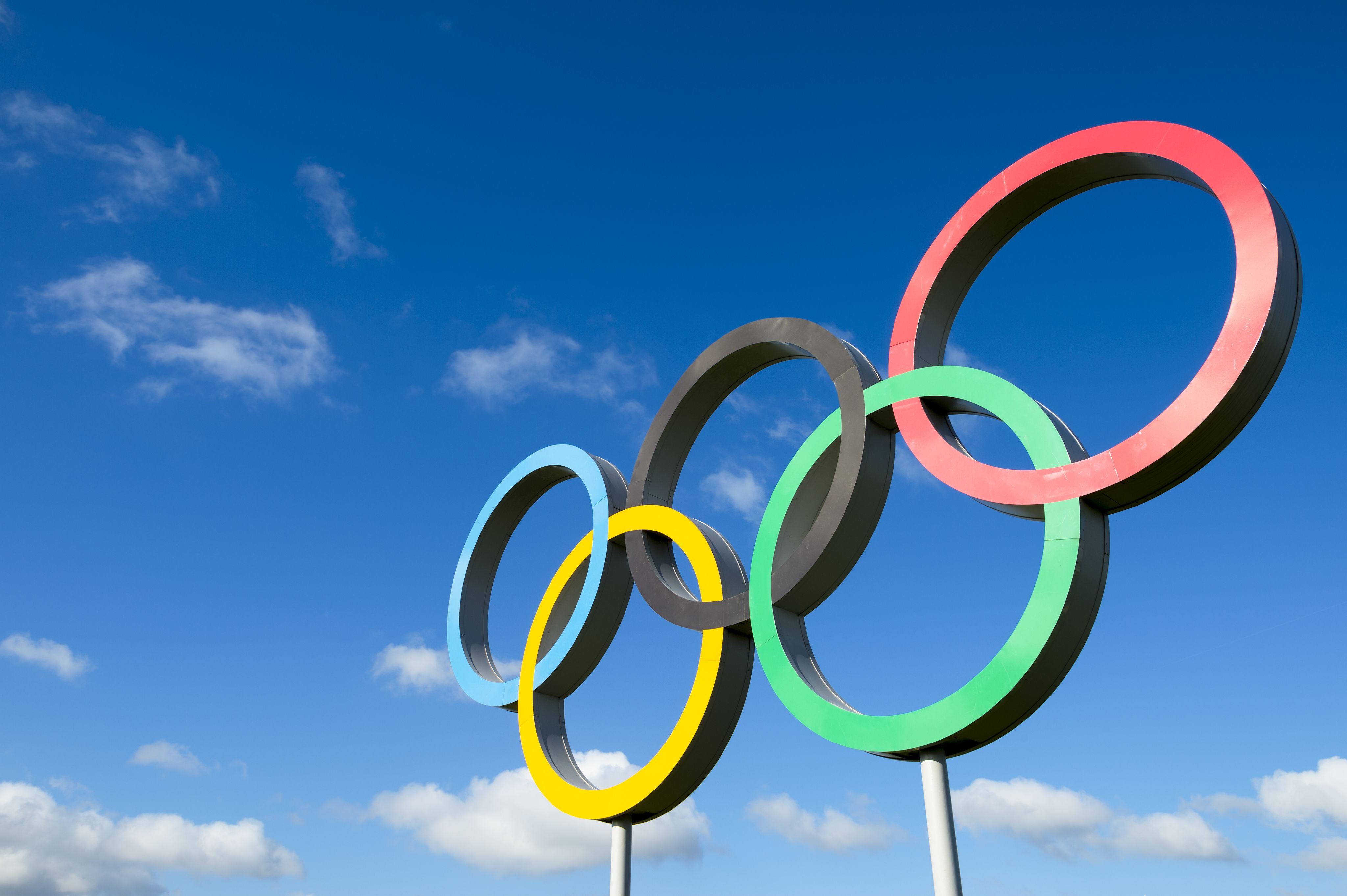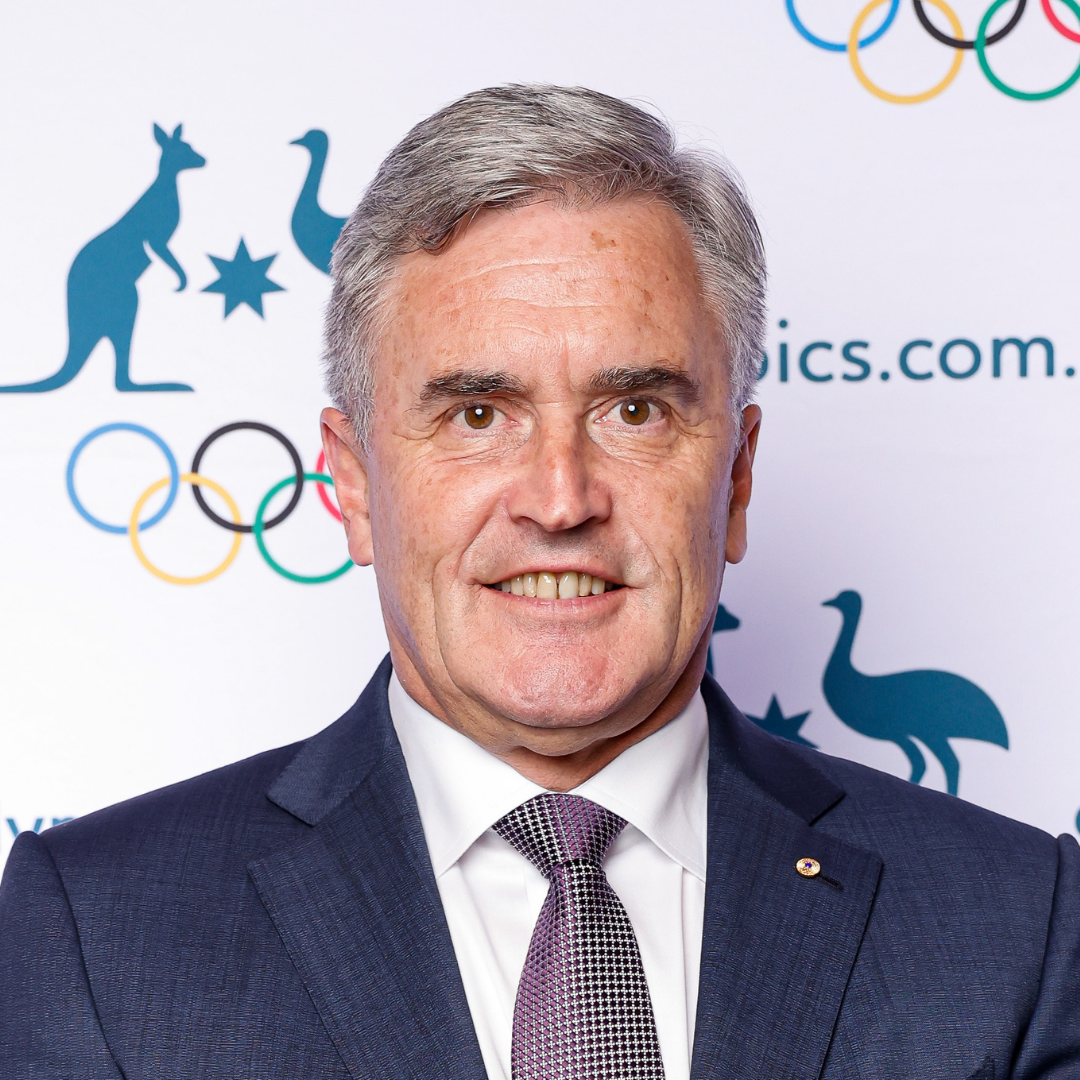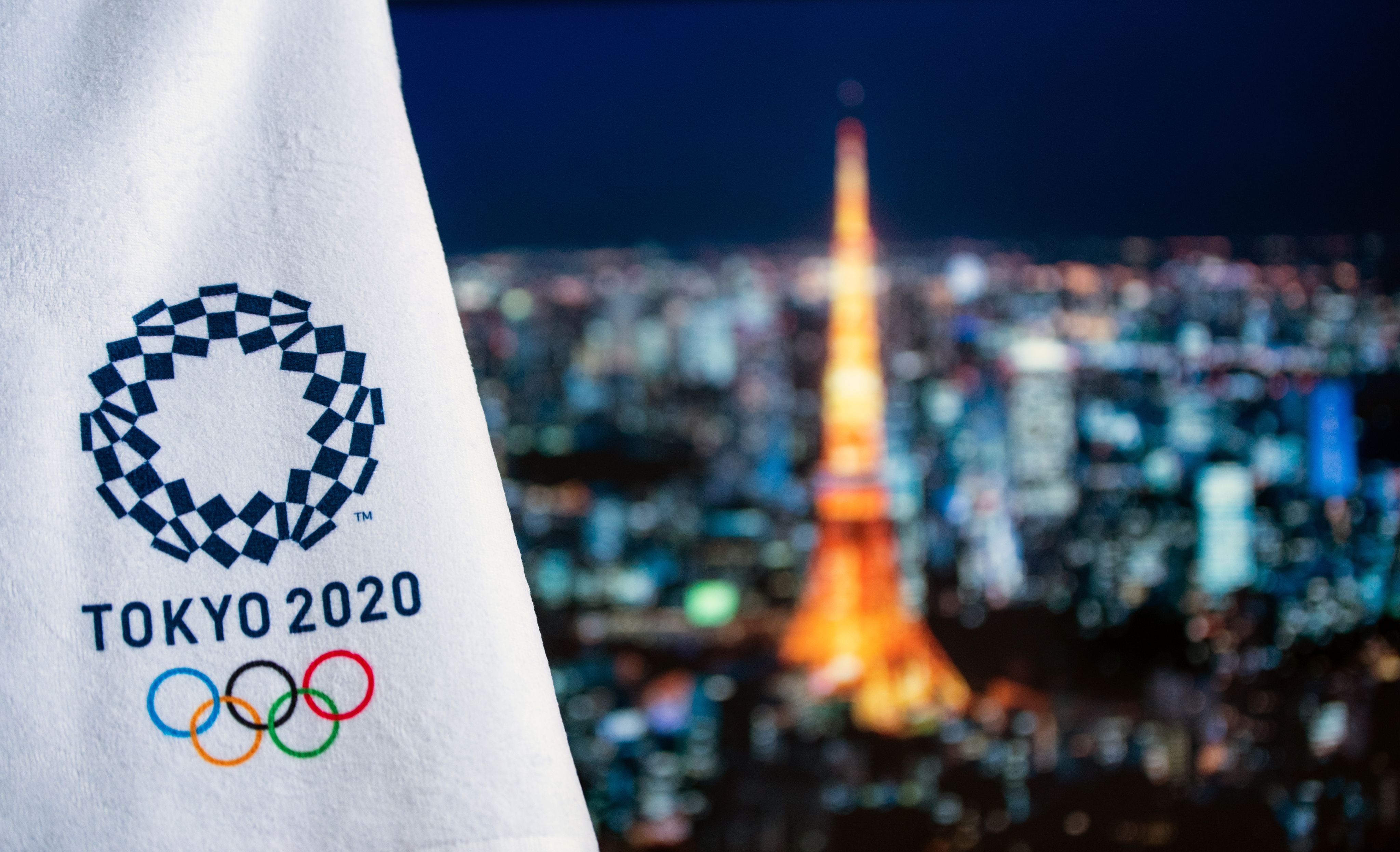AN OLYMPIAN EFFORT
The Games of the XXXII Olympiad were on a knife’s edge amid the onset of the pandemic. Trinity alum and chef de mission of Australia’s 2020 Olympic team, Ian Chesterman AM (TC 1978), reflects on the unpredictable lead-up to the Games, and the sense of accomplishment and exhaustion that followed.

No alcohol. No high fives. No talking loudly. And, definitely, no cheering. The Japanese, known for their sense of order and compliance, were ready to impose stringent rules on spectators attending the 2020 Tokyo Olympic Games. Organisers were gearing up for a domestic-only crowd after the Games were postponed just months out from their original July 2020 starting date, and pushed back to July 2021.
But, as those who have lived through the COVID era well know, best-laid plans could never be guaranteed during a pandemic.
A new wave of COVID-19 started to build in Japan in the lead-up to the rescheduled event, pushing organisers to scrap all spectator plans. For the first time in history, the Olympics would go ahead without a crowd, leaving athletes to run, throw, swim and kick in quiet, empty stadiums while fans cheered on from their living rooms.
The fact the Games went ahead at all was remarkable in itself. The Olympics have only been cancelled during wartime (in 1916 during WWI, and in 1940 and 1944 during WWII), but COVID threatened another cancellation as cases continued to soar worldwide and into 2021.
The International Olympic Committee and Japanese government decided ultimately to postpone the event, although most Japanese citizens opposed the decision, believing the Games should not go ahead at all. Welcoming athletes and administrators from many countries, which had imposed a mix of restrictions to fight the virus, was seen as risky – but the organisers forged ahead and onto great success, given the circumstances.
‘To cancel the Games would have been enormous,’ says Ian Chesterman, chef de mission for the 2020 Australian Olympic team and current president of the Australian Olympic Committee. ‘Athletes have spent, in many cases, a big portion of their life preparing for the Games. So, to cancel the Games – to cost a whole generation an opportunity to go to a Games – would have been devastating.’

Ian Chesterman (TC 1978), chef de mission for the 2020 Australian Olympic team and current president of the Australian Olympic Committee.
Ian Chesterman (TC 1978), chef de mission for the 2020 Australian Olympic team and current president of the Australian Olympic Committee.
A joint statement issued by the IOC and Tokyo 2020 organising committee read: The leaders agreed that the Olympic Games in Tokyo could stand as a beacon of hope to the world during these troubled times and that the Olympic flame could become the light at the end of the tunnel in which the world finds itself at present.
Ian mirrors this thinking, saying, ‘I think it was an incredibly great outcome for so many of the fans of sport, or even people who weren’t fans of sport, who became uplifted by the fact that we saw athletes in action in Tokyo at a time when so many people were doing it tough.’
Although Ian felt confident by the end of 2020 that the Games would be held, largely because of the development of a COVID-19 vaccine, he says there was a great sense of uncertainty every step of the way. Part of his job as chef de mission was fighting the rumour mill about whether or not the Games would proceed, and in what form.
‘I felt I had an obligation to be incredibly truthful to the athletes, and to be able to give them the information and for them to know that they could rely on the information that we gave.’
Ian’s other concern was what the experience would be for the athletes.
‘Would they always think they didn’t have a chance to go to a real Olympic Games?’ he wondered at the time. ‘But one thing I was really delighted about was that I think the overwhelming feeling was, that they had an incredibly special experience by going to those Olympic Games.’
Ian believes the fact that Japan was slated as host was fortuitous.
‘I think the only country that could have hosted a postponed Games was Japan; their commitment to do so was enormous,’ he says. ‘It would’ve been very easy for any country to walk away from the commitment to host, but the Japanese were resolute in their will to put on the event.
‘The Japanese people had to pay for the Games … but even though they didn’t get to go to the Games, they still found inspiration and pride in hosting and creating that opportunity.’
Australia sent 487 athletes – its second-biggest Olympic cohort ever – and nearly 500 support staff to Tokyo, despite there being severe restrictions on travel at the time, which disrupted preparation and training programs. Perhaps even more surprisingly, only one athlete needed to withdraw because they caught COVID-19, while everyone else competed and came home COVID-free.
Ian says that even though everyone competed and returned safely, the vast uncertainty that overlaid every aspect of the event took an emotional toll.
‘The after-effects, I think, were complete exhaustion from everybody involved. No one can underestimate what it took by everybody involved in the team to get the [Australian] team there, to get them to compete, to get them home safely. It was a huge commitment from a lot of people … it left the system exhausted.’
Looking back, Ian notes that the experience led to permanent change in the way the sporting industry operates. As is the case in many other industries, business travel has reduced thanks to the popularity of Zoom and administration has been streamlined, but Ian says the essence of sport cannot change.
‘Fundamentally, sport is a people business, and people need to get together. That’s the way we operate.
‘People also have to understand the power of sport to inspire the next generation of people to actually try and be something, to try and do something. Not everyone is going to be an Olympian … but the role of sport is to inspire people just to try something and be the best they can be, whether it’s in sport or any walk of life.’
Here’s to Paris 2024.

>>> READ NEXT: WHERE IS GOD IN ALL THIS?